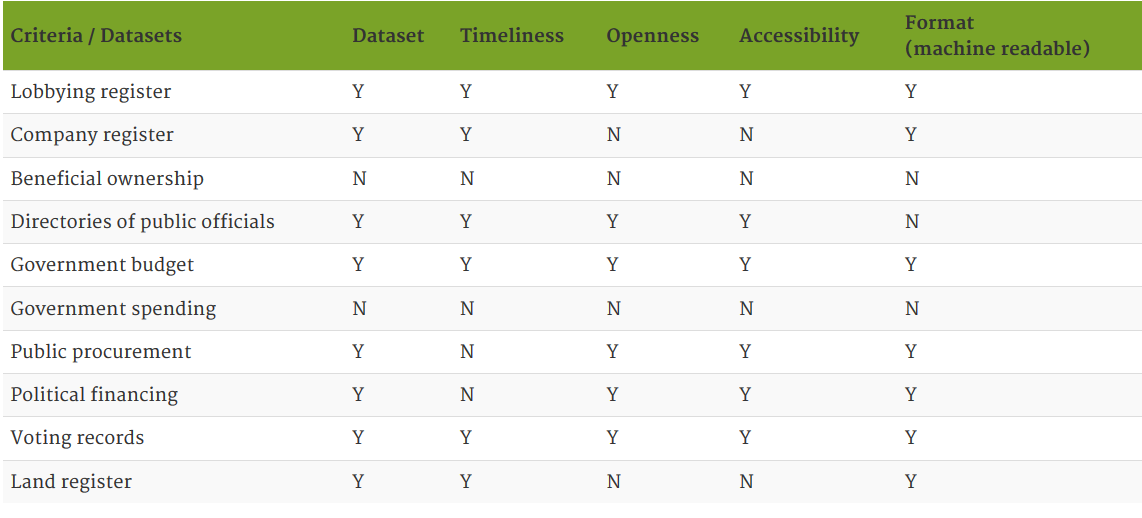Opening up government data to fight corruption has been a stated aim for many Open Government Partnership members. When data is open by default information is easier to work with, investigate, understand and leverage to combat corruption. With open data, released according to agreed standards, people have a key means to hold their institutions and elected officials to account on government activities, including budgets and expenditures.
But are OGP countries truly opening up data that can be used to tackle corruption? Transparency International and the Web Foundation decided to team up to find out. We’ve conducted a five country study, and today – to mark international anti-corruption day – we’re releasing a sneak preview of the results, focusing on the OGP current chair and Summit host, France.
When it comes to 10 key datasets on anti-corruption, we compiled a list of criteria to assess whether they reflect open data. Overall, France is doing well at disclosing details about lobbying activities, government budgets and political financing. But France does not reveal enough information about detailed government spending and the true owners of companies. Also, fees, such as for land registry data, are currently imposed (although efforts are underway to remove them).
Studies like this help hold countries accountable for such public commitments and highlights where more efforts are needed. While France has taken notable strides in recent years on both anti-corruption and open data, gaps remain.
Over the last three years, several laws have been passed and new agencies have been set up to ramp up national efforts to prevent corruption. On open data, a new dedicated agency – Etalab – has been tasked to promote data publication and reuse, and a Chief Data officer has been appointed. Also, the country has adopted the International Open Data Charter.
Now is the time to close the remaining gaps:
- Promote the publication of key anti-corruption datasets and thus better address corruption risks;
- Catalyse a change of culture at all government levels on how open data can be used to fight corruption;
- Adopt open data standards, particularly on public procurement;
- Support the action of Etalab and local governments by providing them with the necessary resources to open up strategic data.
- Avoid use and abuse of license fees to guarantee free and equal access to key data.
Notes on the Study
Transparency International and the Web Foundation have done the assessment of Brazil, France, Germany, Indonesia and South Africa to look at whether they are putting into policy and practice the G20 Anti-Corruption Open Data Principles which they adopted in 2015 and are based on the six principles of the International Open Data Charter. G20 governments committed to identify and publish high quality and proactively disclose anti-corruption datasets, including those above, that provide critical information to fight corruption and which can lead to the development of a robust collection of anti-corruption data in countries and globally. The study will be released in January in time for the next meeting of the G20 Anti-corruption Working Group.
If you’d like to be notified when we release the full results of the study, please let us know: contact@webfoundation.org
* This blog is co-authored with Craig Fagan, Policy Director at the Web Foundation

















 Connect with us on Facebook
Connect with us on Facebook Follow us on Twitter
Follow us on Twitter